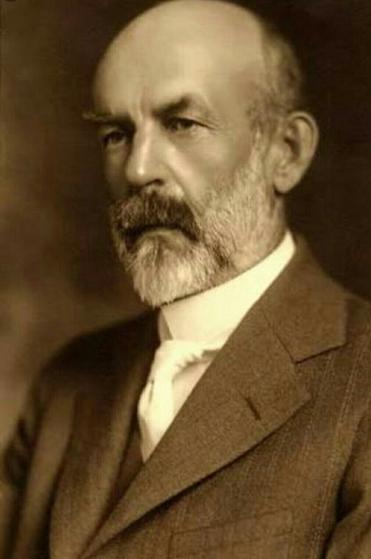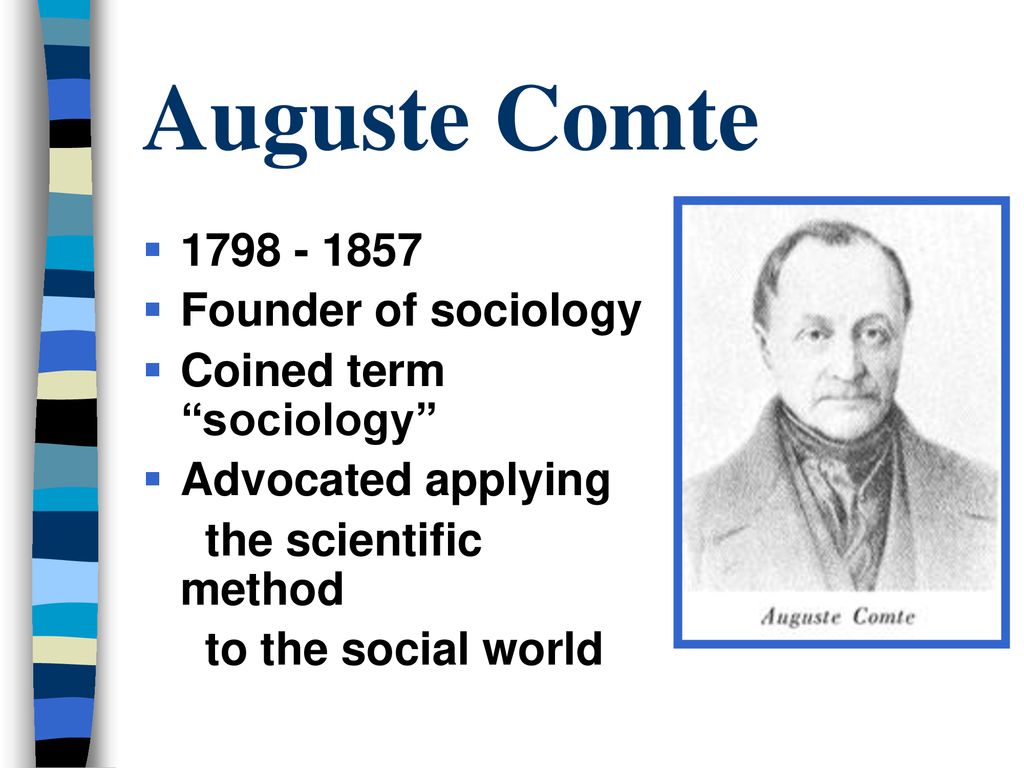The forefathers of sociology were a group of pioneering sociologists who laid the foundations for the development of the discipline as we know it today. These individuals were instrumental in shaping the direction and focus of sociology, and their work continues to influence the field to this day.
One of the most notable figures in the history of sociology is Auguste Comte, who is often referred to as the "father of sociology." Comte was a French philosopher and positivist who is credited with coining the term "sociology" and developing many of the concepts and theories that are still central to the discipline today. Comte argued that sociology should be a scientific discipline that focused on the study of society and social phenomena, and he proposed a three-stage model of the development of human thought in which the final stage was the scientific understanding of society.
Another important figure in the development of sociology was Herbert Spencer, an English philosopher and sociologist who is known for his contributions to social Darwinism and the development of evolutionary theory. Spencer believed that society was like a living organism, and that it evolved over time in a process of natural selection. He argued that social institutions such as government and religion were the result of this evolutionary process, and that they played a crucial role in the development of human society.
A third key figure in the history of sociology is Émile Durkheim, a French sociologist who is known for his contributions to the study of social structure and social solidarity. Durkheim argued that social solidarity was the foundation of social order, and that it was maintained through shared values and beliefs. He also proposed the concept of anomie, which refers to the social and psychological consequences of a lack of social solidarity.
Other notable figures in the history of sociology include Max Weber, a German sociologist who is known for his contributions to the study of social stratification and the role of religion in society, and Karl Marx, a German philosopher and economist who is known for his contributions to the study of capitalism and the theory of class struggle.
In conclusion, the forefathers of sociology were a group of pioneering sociologists who made significant contributions to the development of the discipline as we know it today. Their work continues to influence the field and shape the direction of sociological research and theory.
Sociology For Dummies Cheat Sheet

Does this existence by any definition of reason and actual thorough contemplation of evidence based data support this view as a necessary endgame of adopting or rather being born with and unable to logical find enough evidence for a that although potentially comforting an atheistic worldview White, A. The Sociology Book: Big Ideas Simply Explained. William James William James was a philosopher, physician, and psychologist, and the first educator to offer a He was concerned about why some people seemed able to thrive and overcome adversity, while others developed mental health problems. He developed the dichotomy of generation, and the inevitable loss of power that occurs when desert warriors conquer a city. He is particularly credited with establishing sociology as a discipline in academics.
The Founders of Sociology

The Germany's groundbreaking work influenced its government to add the position of Minister of Culture to advance the country as a whole. In 1904, Weber wrote a controversial book referred to as The Protestant Ethic and the Spirit of Capitalism. He established a sociology department at the Ludwig-Maximilians University of Munich in Germany in 1919. According to the French philosopher, society underwent three phases of development. Bring to a boil over medium-high heat; reduce heat to medium, and simmer, stirring occasionally, 20 minutes or until beans are tender. Marx believed that the ideal government would be a communist state where each person is given what they need, while contributing what they can. Charismatic authority, finally, rests on the appeal of leaders who claim allegiance because of their extraordinary virtuosity, whether ethical, heroic, or religious.
Who are the forefathers of psychology?

Indeed, there are examples of some sect members being subected to tyranical disipline. Sociology Today There are many new social issues - generated by technological development, globalization, and the changing world - that sociologists examine in the 21st century. He has authored or coauthored several books and sociological research studies, including Reconstructing the University. Khaldun laid down the foundation of modern economics and social sciences. His life and work are chronicled in a biography titled Charles S. The Sociology Book: Big Ideas Simply Explained. As part of a qualitative analysis, sociologists might interview people about their experiences in the workplace and the labor market.
Forefathers' Day (December 22nd)

A History of Sociology in Britain: Science, Literature, and Society. The period around the 18 th century, saw philosophers start thinking deeper about the social world. Felix Weil was one of the students who received their doctorate on the concept of socialization from the University of Frankfurt. The desire to understand and explain social life and ills and thus generate social reform was there in the work of John Locke, Voltaire, Thomas Hobbes, and Immanuel Kant to mention a few of the Enlightenment thinkers. At this time, academia was not concerned with theory; especially not to the point that academia is today. Weber referred to this practice as the Protestant ethic.
The Founding Fathers of Sociology

Fanon died in Bethesda, Maryland in 1961. His collected works and interviews are featured on a website titled The C. The popularly accepted view by many is I think more a result of confirmation bias, not always from a stance of active hostility or motivated attempt to spread anti-atheist sentiment, but more from a much too hasty acceptance of harmful and bigoted stereotypes not to mention a homogenous group of clones. Max Weber 1864-1920 Max Weber was a German sociologist who agreed with Marx that people often fight to protect their own interests, but he agreed with Durkheim that what people consider their interests often are determined by socialization and shared values. Durkheim formulated his conclusions about the causes of suicide based on the analysis of large amounts of statistical data collected from various European countries. Other ingredients that people include are okra, multi-colored sweet peppers, tomatoes, salt pork, turnips, potatoes, and corned beef.






